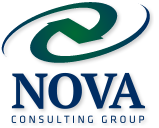The ugly truth is that we, as humans, lie. We do it all the time for various reasons. A study by the University of Massachusetts found that in a 60-minute conversation, most of us lie at least once!
Add time pressure and self-interest to every sales situation, and you have a recipe for disaster.
Sales performance research tells us that a salesperson’s first instinct is to serve their self-interest. Therefore, people are likelier to lie when they can justify such lies to themselves, which takes time to consider the consequence of their actions.
According to researcher Shaul Shalvi of the University of Amsterdam, “…when people act quickly, they may attempt to do all they can to secure a profit–including bending ethical rules and lying….”
It’s a real problem
Lying in sales organizations is enormous. Surveys have shown that it can be as high as 50% in some organizations and, in some cases, almost 60% of the sales team cheats on their expense reports (Strout, E. Are your Salespeople Ripping you off? Sales and Marketing Management, 153(2), 57-62). Those same surveys found that 45% of sales managers have caught salespeople lying to customers and that 47% of sales managers suspect that some lie to customers on sales calls.
The impact on the organization can be devastating:
- Loss of customer trust
- Loss of revenue
- Permanent damage to your brand
- Loss of high-performing, ethical employees
- And the list goes on…
Can it be fixed?
Lying occurs when “informational asymmetry” occurs. Informational asymmetry occurs when one party has more information than the other party. Implementing control systems can reduce informational asymmetry. A control system is “an organization’s set of procedures for monitoring, directing, evaluating and compensating its employees” (Anderson and Oliver, 1987).
Sales performance research identifies two control strategies – outcome-based and behavior-based control systems (Anderson and Oliver, 1987; Jaworski, 1988). A note of caution here – study and first-hand experience tell us that control systems can only reduce, not eliminate, information asymmetry. Some salespeople could still behave opportunistically and show dysfunctional behaviors, such as lying.
Monitor salespeople’s behaviors and activities rather than just their results with behavior–based control systems, which use constructive sales coaching to reduce information asymmetry. Empower salespeople and facilitate their discovery, development, and learning with effective sales management behaviors such as directive, authoritarian, and controlling (Ellinger et al., 2008; Hamlin et al., 2006). Make sure to not just focus on the numbers but how they are achieved.
Sales coaching works
Sales coaching can reduce (not eliminate) lying (information asymmetry) and other deceptive behaviors in salespeople. It creates a higher-quality relationship between the sales manager and the salesperson. With the higher quality of these relationships and the increased trust, consideration, mutual obligation, and open communication, salespeople will tend to reciprocate and tell sales managers the truth regarding their sales activities.
Create a Coaching Culture
Creating a coaching culture for a sales team is an essential step in ensuring success. Coaching helps to ensure that everyone on the team understands their roles and responsibilities and works together to reach common goals. It also helps to create a positive work environment, with employees feeling supported and motivated to perform at their best. Through coaching, sales teams can develop strategies to help them succeed long-term. Coaching also helps build trust between team members, which is essential for collaboration and open communication. Ultimately, creating a coaching culture for a sales team can lead to improved performance and increased success.
When you think about sales effectiveness at your organization, does it seem like you are close but just missing those unique elements that give you that competitive edge? Looking for a way to understand how your buyer thinks, decides, and reveals information? At The Nova Consulting Group, we believe that professional selling is a craft. With the Advanced Sales Conversation©, you have those missing elements that move your salespeople from competency to mastery. With our deep understanding of what makes and sustains high-performance organizations, we provide integrated solutions that do not replace your sales methodology and yet advance a progressive selling mindset. Be bolder, more insightful, and get results. To learn more about how to master the craft of sales and encourage sustainable high performance, call (617) 933-7249 or email info@novaconsultinggrp.com.
How Does Your Buyer Remember You?
Buyer, will you remember me? It is a curious thing. Most B2B buyers do not perceive sellers as different from one another. Given how much work goes into the development of products and services, [...]
Mid-Year Sales Review: Simplify and Stop Pushing
Mid-year is such a turning point for a sales team. You can notice trends, problems, and opportunities. However, those problems can be magnified when the sales team is behind in its mid-year goal. On [...]
Listening to Understand: Sales Conversations That Matter in the Digital Age
Even in the Before Time (remember those years before COVID?), buyers were moving away from salespeople and changing when and how sales conversations happened. In our first white paper, Window Into the Buyer’s Mind, [...]
Leading Resiliency: Developing Your Sales Team for 2024’s Challenges
The sales landscape is undergoing a monumental shift, creating turbulence for sales teams. High-performing sales teams show greater resiliency when ongoing development is part of the employee experience. That resiliency supports how salespeople cope, [...]
CROs, Is This Sales Conversation Myth Derailing Your Forecast?
There is this weird perspective in sales that could very well derail your forecast. There is this belief that any sales conversation is better than no conversation. This means that someone on your team [...]
10 Ways the Advanced Sales Conversation© Supports Non-Traditional Sellers
Are you a lawyer, consultant, C-level executive, architect, project manager, engineer, or freelancer? Regardless of your profession, you are likely responsible for maintaining clients and attracting new business. However, selling and persuading others may [...]








